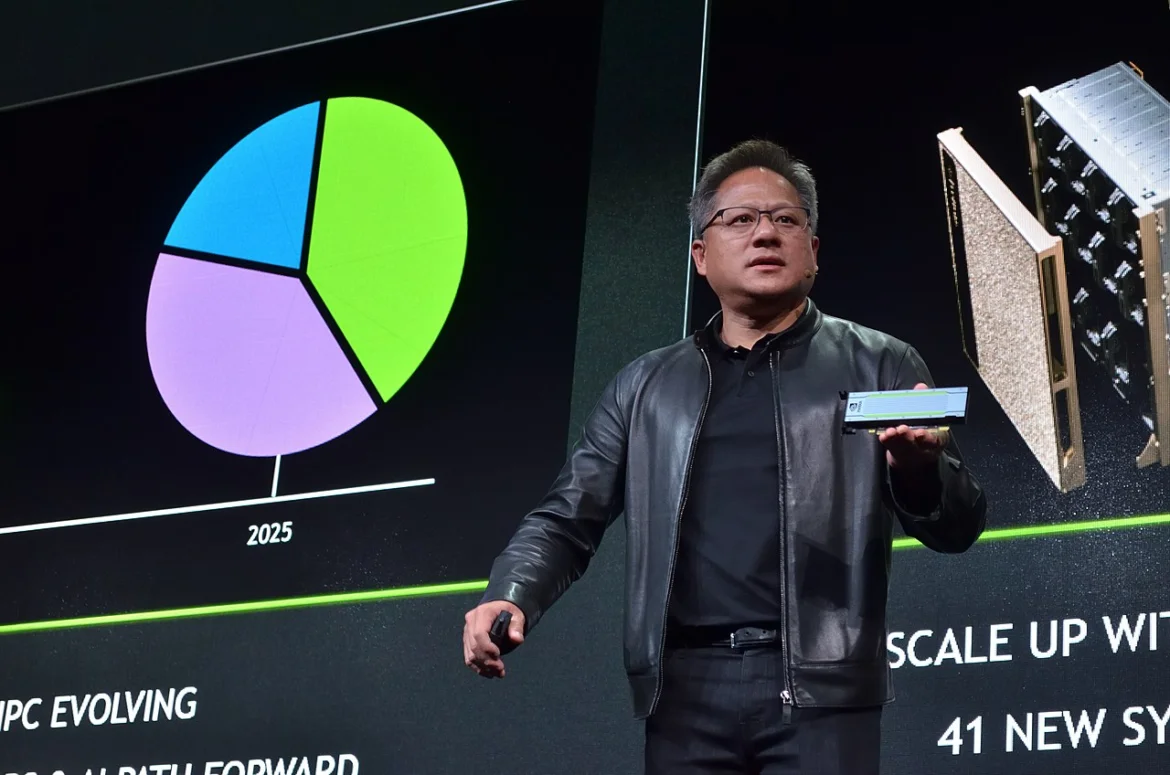Jensen Huang, the CEO of Nvidia, a prominent player in AI-chip manufacturing, suggested during an economic forum at Stanford University that artificial general intelligence (AGI) could become a reality within the next five years.
In response to inquiries about the timeline for achieving AGI, Huang emphasized the importance of defining the goal. He proposed that if AGI is defined as the ability to successfully pass human tests, significant progress could be made in a relatively short time frame.
Huang expressed confidence in AI’s potential, stating, “If I gave an AI… every single test that you can possibly imagine, you make that list of tests and put it in front of the computer science industry, and I’m guessing in five years time, we’ll do well on every single one.”
While AI currently demonstrates proficiency in certain assessments, such as legal bar exams, challenges persist in specialized areas like medical tests, including gastroenterology. Nonetheless, Huang anticipated that within five years, AI could overcome such hurdles and excel in diverse testing scenarios.
However, Huang acknowledged diverging opinions among scientists regarding the understanding of human brain functionality, which poses challenges for engineers aiming to replicate such cognitive processes.
Addressing concerns about the infrastructure required to support AI advancements, Huang noted the necessity for additional chip factories (“fabs”) while highlighting ongoing enhancements in chip efficiency and processing capabilities. He emphasized the dynamic nature of computing evolution, suggesting that advancements in algorithms and processing would mitigate excessive demand for chips.
Nvidia’s recent achievement in surpassing a market value of $2 trillion underscores its pivotal role in driving technological advancements, particularly in AI. This milestone positions Nvidia as the third-largest U.S. company by market capitalization, trailing only Microsoft and Apple, and surpassing industry giants like Google and Amazon.
The journey toward AGI remains complex, with ongoing debates surrounding its definition and the requisite technological advancements. However, Huang’s optimism regarding AI’s trajectory underscores the potential for significant strides in the near future, reshaping various industries and societal landscapes.
For more such insightful news & updates around AI or Automation, explore other articles here. You can also follow us on Twitter.


Leave a Reply